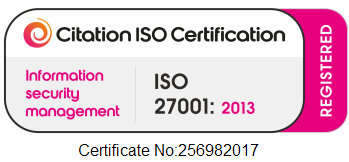The Role of Onboarding Software in Remote Work and Virtual Teams
Remote and hybrid teams have become the new norm. Companies are embracing the flexibility, global talent access, and cost savings that remote work offers. However, managing remote employees and virtual teams comes with its unique set of challenges, especially when it comes to integrating new hires into the company.
This is where remote onboarding software plays a crucial role, ensuring that businesses can seamlessly onboard employees, regardless of their location. In this article, we’ll explore how onboarding software is essential for virtual teams and why it’s a key component in the success of remote work environments.
Why Onboarding Matters in Remote Work
For any organisation, onboarding is a critical process that sets the tone for a new hire’s experience. A well-executed onboarding process increases employee engagement, accelerates productivity, and reduces turnover rates. However, for remote teams, the onboarding process is more complex. The lack of face-to-face interaction, time zone differences, and communication barriers can lead to confusion, disengagement, or delayed integration into the company culture.
This is where virtual onboarding software steps in to provide structure, consistency, and connection in the onboarding process. Through streamlined processes and automated tasks, this software helps remote employees feel supported, informed, and integrated from day one.
Key Benefits of Remote Onboarding Software
- Consistency Across the Board
One of the biggest challenges in remote work is maintaining consistency across different teams, departments, and locations. Onboarding software provides a standardised approach to welcoming new hires by automating key tasks such as document signing, compliance training, and introductions to company policies. With remote onboarding software, every employee, regardless of location, receives the same experience, ensuring that no critical step is missed.
- Seamless Document Management
Handling paperwork and documentation is a crucial part of onboarding. For virtual teams, managing these documents digitally is not only more convenient but also necessary. Onboarding platforms allow new hires to sign contracts, submit identification, and complete tax documents securely and efficiently. This ensures compliance while saving HR teams from chasing down signatures or lost paperwork. Employees can access all the materials they need in one place, reducing confusion and speeding up the onboarding process.
- Customised Learning Paths
Every company has its own specific culture, values, and tools that employees need to learn. For remote workers, getting up to speed with these elements can be challenging when not physically present in the office. Onboarding software offers remote work onboarding tools such as interactive training modules, video tutorials, and quizzes that can be tailored to each role or department. This personalised approach ensures that employees not only learn the essentials but do so in a way that fits their job function and learning pace.
- Facilitates Communication and Collaboration
Communication is at the heart of any successful virtual team. Remote onboarding software often includes features like messaging platforms, video introductions, or virtual meet-and-greet sessions, allowing new hires to connect with their colleagues even if they are thousands of miles apart. It helps break the isolation that can sometimes come with remote work and fosters a sense of belonging, which is critical for team cohesion.
- Tracking Progress and Providing Feedback
Managing virtual teams requires constant oversight to ensure productivity and alignment with company goals. With virtual onboarding platforms, managers can track the progress of new hires in real time. They can monitor which training modules have been completed, review task checklists, and even solicit feedback from new employees about their onboarding experience. This allows HR and management to make adjustments and ensure that every new hire is set up for success.
Overcoming Challenges with Virtual Onboarding
Despite the benefits, onboarding remote employees can still present some challenges. Ensuring that new hires feel connected to the company’s culture is often one of the hardest aspects of remote onboarding. However, with the right tools, companies can overcome this. Onboarding platforms can incorporate virtual team-building activities, introduce new hires to mentors, or even provide immersive virtual office tours. These features help employees build relationships and feel more integrated, even if they are working remotely.
Another challenge is keeping new hires engaged when they aren’t physically present in an office environment. Onboarding software combats this through gamification, interactive learning tools, and a clear onboarding roadmap that keeps employees motivated and engaged throughout the process.
The Future of Onboarding in Remote Work
As remote work continues to rise, the need for effective remote work onboarding tools will only grow. Companies that invest in virtual onboarding software will have a competitive advantage in attracting and retaining top talent from around the world. In the future, onboarding software will likely evolve to include more AI-driven features, deeper analytics, and even more customisation options, making it an indispensable tool for HR departments.
It brings structure, consistency, and engagement to a process that can often feel disjointed in a remote setting. By streamlining tasks, improving communication, and offering tailored learning experiences, onboarding software helps remote employees integrate quickly and effectively. As remote work continues to expand, businesses that prioritise seamless virtual onboarding will not only increase employee satisfaction but also ensure the long-term success of their teams.
Embrace the future of work with the right onboarding tools to keep your virtual team connected, informed, and productive from day one!




Comments are closed